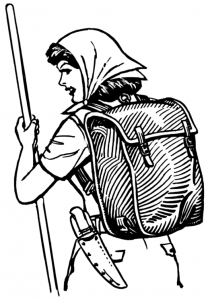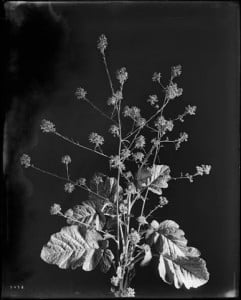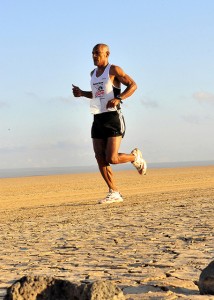 I’ve been cycling a lot lately, the spandex, sunglasses and shaved-legs kind, yes, but also the get around town kind. To the coffee shop, to the store, to school—if I’m going someplace by myself I do my best to get there by bike.
I’ve been cycling a lot lately, the spandex, sunglasses and shaved-legs kind, yes, but also the get around town kind. To the coffee shop, to the store, to school—if I’m going someplace by myself I do my best to get there by bike.
One particular stretch I ride regularly has newly striped bike lanes—lanes that didn’t come without protest from a handful of residents on the busy street. Essentially, the question came down to whether streets are for cars and for bikes or just for cars. The residents of the street thought that the street and its wide shoulder should be for the driving and parking of cars. The many bike commuters who follow that street to get to the metro and Old Town Alexandria thought that the street should be shared by both. The city sided with the cyclists and my rides are a little less harrowing as a result. The conflict, however, raised a theological point.
The question of whether roads are for cars or for bikes or for both reminds me of St. Augustine’s City of God. It’s a massive book, but at its core is the idea that there are two overlapping cities—the City of God and the City of Man. The City of God is a city founded on peace and whose end is peace. It is oriented toward the final coming of God’s kingdom. The City of Man is a city that was founded on violence and is animated by pride, power, and greed—what peace it has is based on violence. The residents of both cities interact in commerce, in space, etc., but at the end of the day they are working toward different ends. Only one of those cities really has a future.
What is at play on the streets, with bikes and cars and buses, are essentially two cities, two different realities with differing values. Sometimes the two overlap, but at the end of the day, the cyclists and the drivers are using the roads toward different ends. Of course many people, like myself, use the roads in both modes. I drive and I bike, but it wouldn’t take me long to choose if I could only have one. In fact the only reason I keep driving my car in many instances is because of cars—if I could safely ride with my two year old on the main streets of the city I would do it.
When I drive a car I am participating in a fallen reality—the oil economy, the speed economy, the death economy. It is the car that has made the suburb possible; it is the car that is responsible for over 30,000 deaths in the U.S. each year—the cost of velocity more than anything else. Transportation—cars, buses, trucks—contributes 30% of the total carbon emissions for the U.S. each year. I cannot imagine a place for cars in the coming Kingdom of God.
Bikes, however, are deeply sustainable. We could go on riding them forever. They can go fast, yes, but fast on a bike goes barely above a school zone speed limit. They are healthy for both our bodies and the earth. I hope to be riding bikes now and forever, even in the coming Kingdom of God. When I ride my bike, even on the hard days of heat or cold, even on the days when I have to pull out my rain gear—I am doing so as an eschatological act. I am living into the City of God—its values, its ends.
Theologian Stanley Hauerwas has often reminded us that the reason he is a pacifist isn’t because he thinks it will work better than war to bring the world peace or relieve the suffering of innocents. He is a pacifist because he believes the call of Christ does not allow him to be otherwise. To be a pacifist now is to perform an eschatological act—it is a commitment to live into the kingdom that is coming rather than the kingdom that is fading away.
When I bike I am living into something more hopeful and joyful, slower and more human than the world of cars and oil and traffic. It is a small act of embrace of the world as it should be and will be. With each pedal stroke I am getting my legs ready for the streets of the Kingdom that is breaking into the world.











